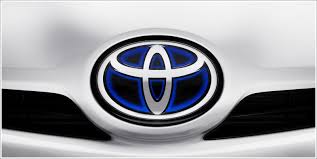
Uttar Pradesh, India's most populous state and a significant player in the automotive market, has decided to uphold its recent policy of waiving registration taxes for hybrid cars, a move that benefits Toyota but poses challenges for domestic automakers Tata Motors and Mahindra & Mahindra.
The state’s decision, which was confirmed in a meeting on Sunday between state officials and automotive representatives, means that hybrid vehicles will remain 10% cheaper due to the tax waiver. This policy shift, which provides potential savings of up to $5,200 on models like the Toyota Camry hybrid sedan, has been hailed as a significant victory for Toyota.
Uttar Pradesh Chief Secretary Manoj Kumar Singh announced that there would be no reversal of the tax waiver, stating that the "status quo will remain," according to an industry source and a state government official. Singh did not respond to requests for further comment.
The waiver has sparked a debate among automakers. While Toyota and other supporters of the policy, such as Maruti Suzuki, welcome the financial relief, companies like Hyundai, Kia Motors, Tata, and Mahindra have lobbied against it. They argue that the waiver undermines efforts to promote fully electric vehicles (EVs) and could jeopardize their investment strategies aimed at increasing EV adoption in India.
The concern is that other states might follow Uttar Pradesh's lead, further complicating the transition to electric vehicles. Currently, India imposes a 5% federal tax on EVs, while hybrids are taxed at 43%, just under the 48% rate for gasoline cars. State-specific road and registration taxes are additional and vary by region.
The decision could have wider implications for the automotive industry in India, where hybrid and electric vehicle policies are crucial for meeting national targets for clean energy adoption.
(Source:www.theprint.in)
The state’s decision, which was confirmed in a meeting on Sunday between state officials and automotive representatives, means that hybrid vehicles will remain 10% cheaper due to the tax waiver. This policy shift, which provides potential savings of up to $5,200 on models like the Toyota Camry hybrid sedan, has been hailed as a significant victory for Toyota.
Uttar Pradesh Chief Secretary Manoj Kumar Singh announced that there would be no reversal of the tax waiver, stating that the "status quo will remain," according to an industry source and a state government official. Singh did not respond to requests for further comment.
The waiver has sparked a debate among automakers. While Toyota and other supporters of the policy, such as Maruti Suzuki, welcome the financial relief, companies like Hyundai, Kia Motors, Tata, and Mahindra have lobbied against it. They argue that the waiver undermines efforts to promote fully electric vehicles (EVs) and could jeopardize their investment strategies aimed at increasing EV adoption in India.
The concern is that other states might follow Uttar Pradesh's lead, further complicating the transition to electric vehicles. Currently, India imposes a 5% federal tax on EVs, while hybrids are taxed at 43%, just under the 48% rate for gasoline cars. State-specific road and registration taxes are additional and vary by region.
The decision could have wider implications for the automotive industry in India, where hybrid and electric vehicle policies are crucial for meeting national targets for clean energy adoption.
(Source:www.theprint.in)














